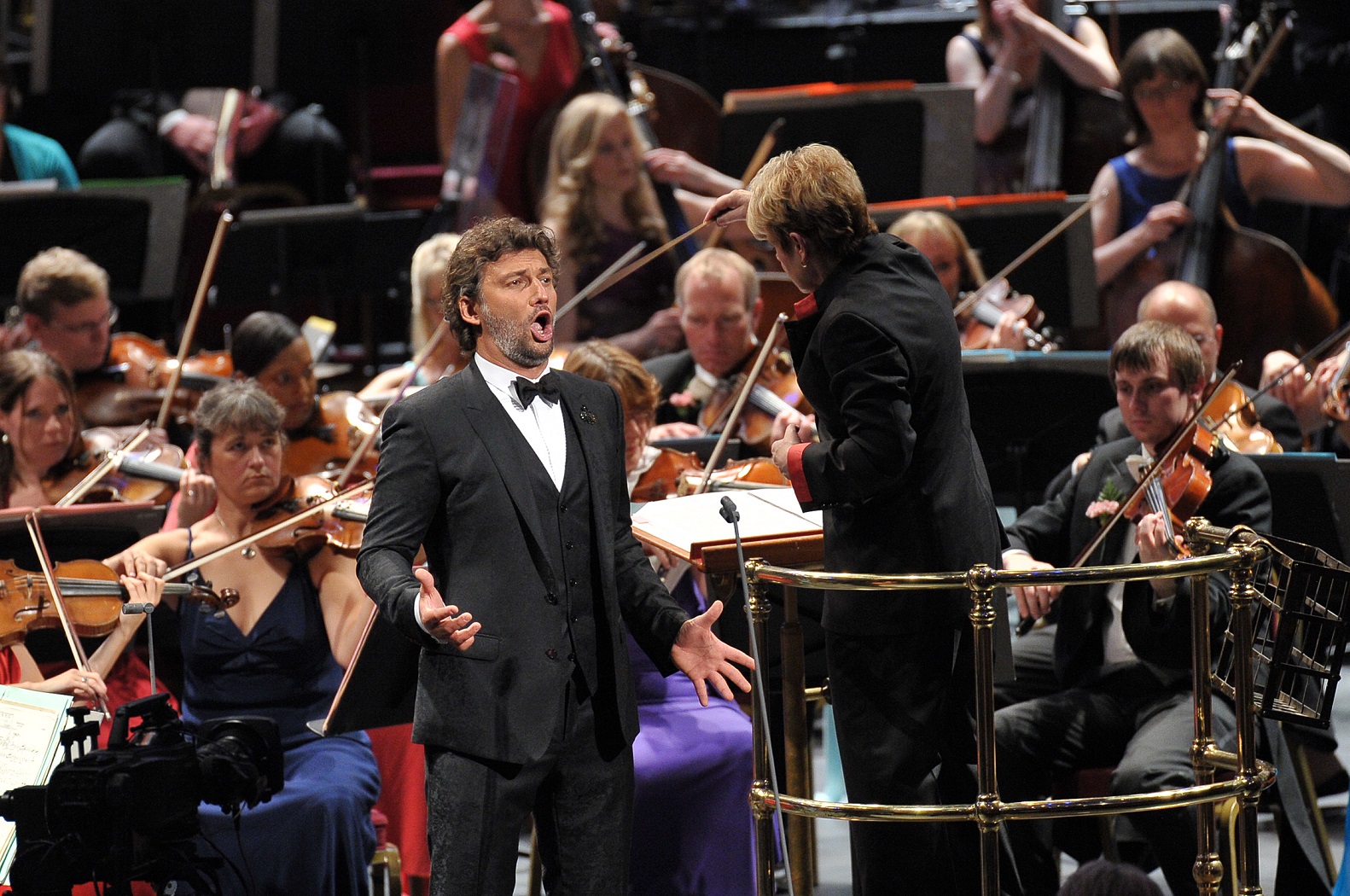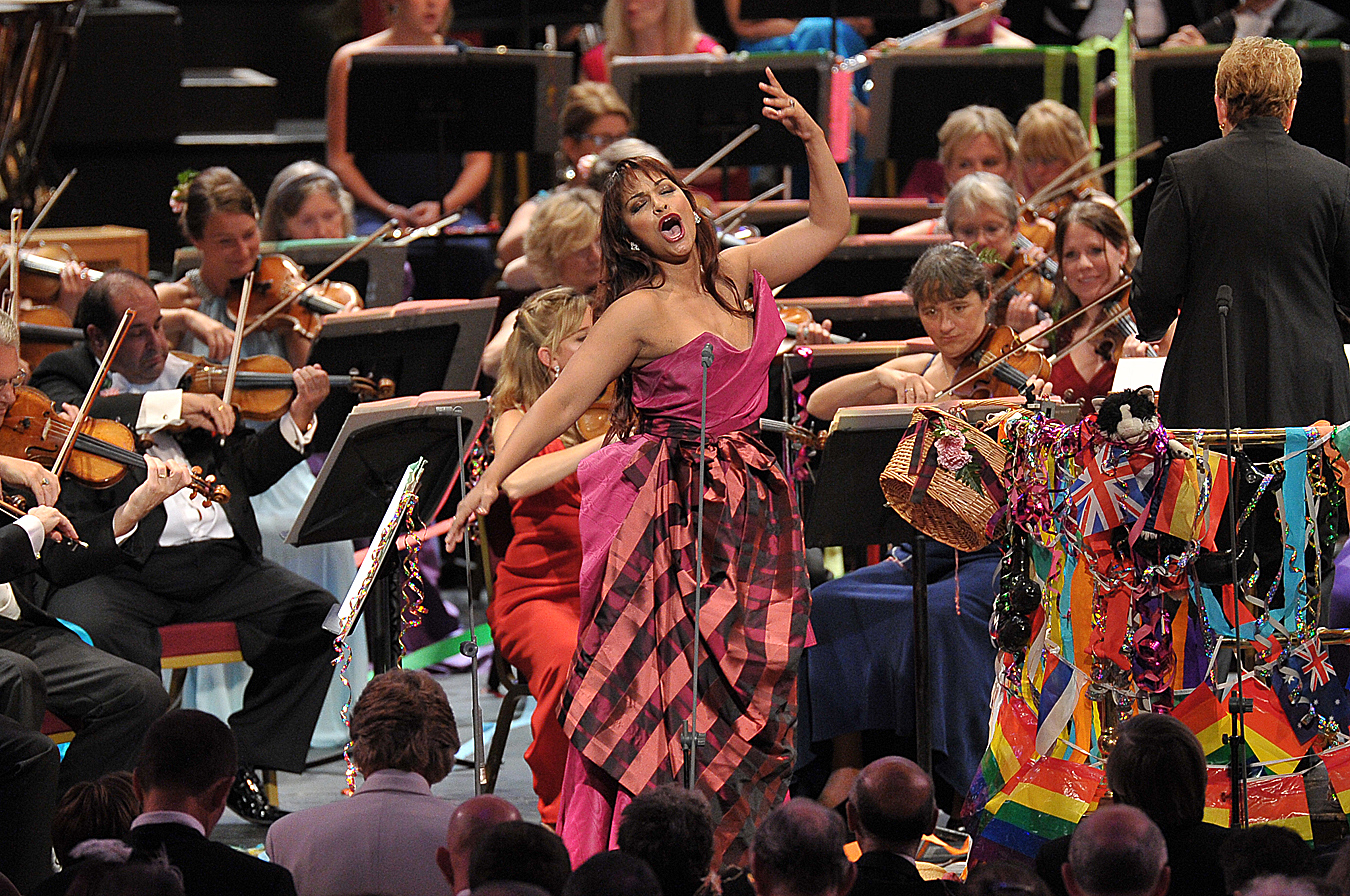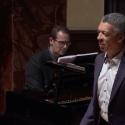“A rich and eclectic sequence of works” was the promise made in this evening’s concert programme. It certainly was that, with the Last Night festivities taking in new and old, well-known and obscure, plus a handful of celebrity soloists for good measure. The audience was predictably ebullient, generating the kind of atmosphere you only get at the Last Night of the Proms. Musically, though, this wasn’t the high point of the season – everything was at least serviceable, and much was very good, but only occasionally did it meet the exceptional standards set in this hall over the last few weeks by visiting and resident orchestras alike.
Eleanor Alberga was given the unenviable task of writing a piece to kick of the celebrations, a work that must satisfy a range of demands, not least accessibility and interest, but also a strong sense of occasion. She opted for a very short (three minutes) chorus and orchestra work setting her own words, Arise, Athena! Even over this brief span, the chorus only sing for a short proportion of the work, with the rest given over to imaginatively orchestrated instrumental textures. If the work didn’t quite have the heft required for such an occasion, that may have been due to the orchestration – many solos and small chamber textures, where bold tuttis were needed to fill the hall.
Jonas Kaufmann turned out to be the star of the show
Benjamin Grosvenor provided the first of the solo performances, giving an elegant account of Shostakovich’s Second Piano Concerto. Grosvenor is clearly now a master of the keyboard, but he wears that authority lightly; there is little of the superstar temperament about him. But his Shostakovich is secure and confident, often lyrical and certainly dramatic when required. The Andante second movement was excellent, with Grosvenor bringing out all the Chopinesque elegance of the endless, sighing melody. Some balance problems in the outer movements though, especially the first, where the piano was often swamped by the orchestra (though I bet it sounded fine on radio).
Arvo Pärt’s Credo was a bold choice for such a populist programme. It’s a collage work, in which the piano (not Grosvenor this time, but the orchestra’s pianist, Elizabeth Burley) plays the First Prelude of Bach’s 48, while the choir sings a Bach-like arrangement of the Credo, while the orchestra, and particularly the brass, compete against both with increasingly aggressive atonal textures. Sadly, this performance didn’t present the work with either the brutality or the contrast it needs. The piano part was played in a surprisingly Romantic way, dwelling long on the first note of each broken chord, and the orchestra often felt restrained in its outbursts. Great singing from the chorus though (the BBC Singers and the BBC Symphony Chorus), who had to tackle a range of avant-garde sounds and effects, and delivered all convincingly.
Next up, Strauss’s Till Eulenspiegel. Another serviceable performance, but not a great one. Alsop struggled here to make the ever-changing tempos cohere and to impose a logical line to its narrative. Why was this work even programmed? In such a long evening, we could easily have done without it. Just for fun I suppose, and whatever its flaws, it certainly was that.

Marin Alsop found her stride in the second half, and from the very first number it was clear exactly why she had been asked back for a second turn on the Last Night podium. The James P. Johnson Victory Stride set the tone perfectly, a bold, jazzy number with irresistible rhythms and plenty of breaks for the orchestra’s soloists (all proving remarkably adept to this idiom). Next some sing-along silliness to the get the audience in the mood for later on, followed by some short trad numbers from Grosvenor.
Kaufmann returned for the Lehár ‘Dein ist mein ganzes Herz’, he too switching between styles with apparently effortless ease. Then followed “Morning” from Peer Gynt (why?) and then onto the final soloist of the evening, Danielle de Niese (pictured below). Her stage presence is extraordinary, captivating, and silencing the huge and by now restive audience, and despite performing meagre fare, an aria from Delibes Chanson espagnole. Better that, though, than The Sound of Music, which followed in a seemingly never-ending medley of the hits. My inner snob got the better of me here, and had me cringing in my seat for what felt like the longest six minutes of my life.

Read theartsdesk's reviews of other concerts from the BBC Proms 2015













Add comment